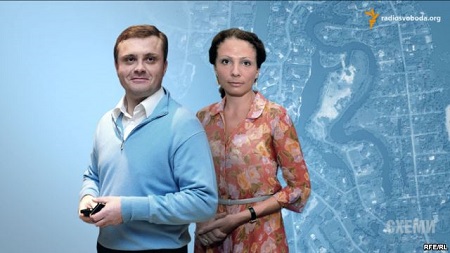Sergey Levochkin and Yulia Levochkina
In connection with the recent land scandal, the name of not only the ex-eminence grise of Ukrainian politics, but also the so-called “Levochkin family” has resurfaced. This family is small, not like, say, the Kruk clan. This family includes Sergei Vladimirovich himself and his sister, Yulia Vladimirovna Levochkina.
But this is if you don’t count their business partners and the mass of hangers-on from a strange structure called the “New Ukraine Institute”, which brings together rather odious personalities from the time of the “Family” rule. With them, the “family” turns out to be quite extensive. But let’s return to the Levochkins. They are both MPs from the Opposition Bloc and very influential people. However, judging by the latest scandals, their influence is declining. But until recently, the Lyovochkins were untouchable “sacred cows” of Ukrainian politics. In order to understand the nature of this influence, we will have to take a short excursion into history.
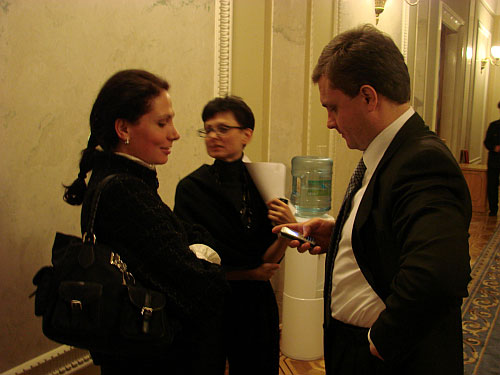
Levochkin. “Gray Cardinal” and his sister
Their father, Vladimir Anatolyevich Levochkin, was a general of the internal troops, worked in the penitentiary service and even headed it at one time. There were rumors that he knew a lot about Viktor Yanukovych. What exactly he knew did not become public knowledge; he took this secret to the grave. Although he may have shared it with his children. According to some reports, this was the main reason for Sergei Vladimirovich’s unsinkability throughout Yanukovych’s entire political career, not only from his appointment as prime minister to his election as president. Much earlier, in the late 90s, Levochkin Jr. was an adviser to Viktor Fedorovich when the latter was governor of the Donetsk region. It was from there, from Donetsk, that he ran for people’s deputies for the first time, but did not make it.
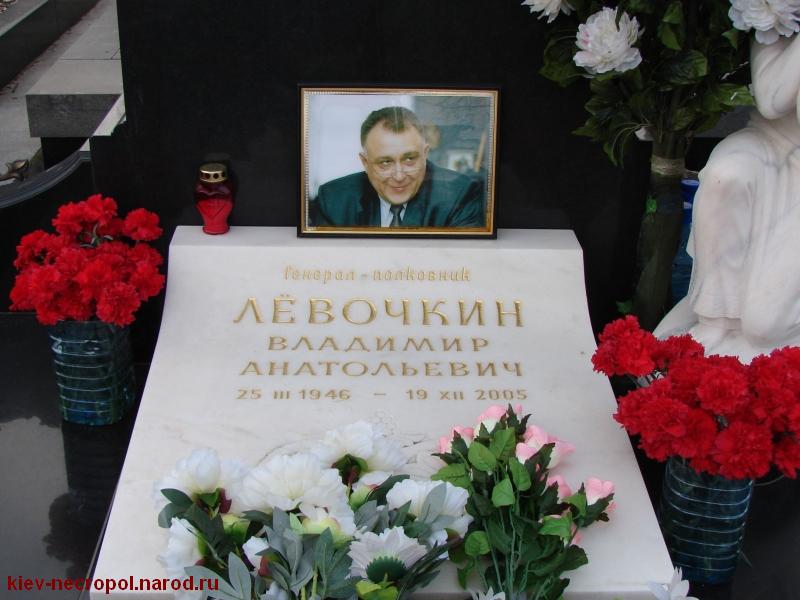
And in the same Donetsk the first business projects of Sergei Vladimirovich began. Here is the company “Vizavi”, which is involved in the creation of the “Industrial Union of Donbass”, and “East-West-Finance”, and “Stroyinvest”, and “Misto Bank”. But the most interesting of the assets related to it is the Askold Bank, later renamed the Banking House. Among themselves they called it “Bandit House”. This bank was then one of the largest conversion centers. But he did not disdain direct scams, and they scammed both the state and private individuals. Money from some branches of the National Bank passed through his accounts, and later they were dissolved in the accounts of firms and small businesses affiliated with the Banking House. In 1999, there was a fire in the bank and all the documents were burned. Many investors, including several high-ranking ambassadors, were left without their deposits. A temporary administration was introduced into the bank and it was renamed Ukrspetsimpeksbank. Back in 1992, Sergei Levochkin drove a Mercedes 600, and later, after a couple of years of working in a bank, he switched to a Volvo.
In principle, this is the ultimate dream of a “simple Donetsk guy,” but Sergei Vladimirovich is an ambitious man and one of the first “Donetsk guys” moved to Kyiv.
It is not known for certain what exactly caused his move to the capital. Perhaps, indeed, ambition. Perhaps deceived investors, among whom, as we have already said, were far from the last people in the country. Or maybe all of them combined at once. But the names of two people are definitely known who recommended the enterprising young businessman to then President Leonid Kuchma. These were the governor of Donbass at that time, Viktor Yanukovych, and Georgy Chernyavsky, head of the presidential protocol service. Levochkin was hired by the then head of the patronage service, Vladimir Litvin. They say that at the beginning of his career in the AP, Sergei Vladimirovich was constantly fleeing from those whom he had recently “dumped.” Former employees of the building on Bankovaya recall that the future “gray eminence” was literally hiding under the table or in Litvin’s dacha. As for the duties of the young official, they were also interesting. They say that he maintained an apartment in which his boss Litvin met with his mistress.
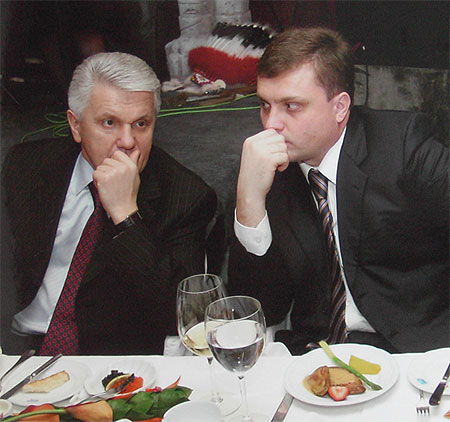
Vladimir Litvin and Sergei Levochkin
(Read more about him in the article Vladimir Litvin: does Ukraine need a professional Judas?)
And then Levochkin’s career took off. He became a reviewer at the AP, then a scientific consultant to the president, then an assistant to the president. This seemingly secretary-level position actually opened up enormous horizons. After all, it is the presidential assistant who shapes the working day of the head of state and decides who to make an appointment and who to refuse. In addition, the information that goes to the president’s desk also passes through him. And here it is, the first success. He managed to slightly move the then all-powerful “gray eminence” Alexander Volkov. Part of the cash flow went through the young official. For example, he lobbied for the interests of the EDAPS company, which became a monopolist in the market for the production of government documents from passports to notary forms. Another mistake Volkov made was that “Mikhalych” did everything himself. Sergei Levochkin immediately began to form a team. He introduced his old friends and partners: into Artem Ershov’s Oschadbank, into the SDPU(o) and arms trade of Rostislav Schiller, into the state mortgage institution of Sergei Svyatko, into Misto-Bank, and later into RosUkrEnergo Ivan Fursin, and his son-in-law He put Arseny Novikov in Ukrspetsexport, and then in Naftogaz. It was at this time that, perhaps, his talent as a communicator first emerged. He communicates, for example, Kurochkin and Yanukovych, Pinchuk (Read more about him in the article Victor Pinchuk: the richest son-in-law in Ukraine) and Grigorishin and, apparently, has a good percentage from this. But in the early 2000s, his sister, Yulia Levochkina, finally appeared, married to Novikova.
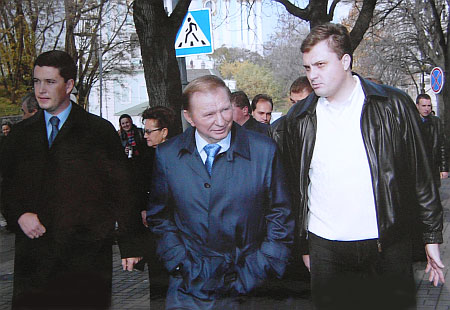
Leonid Kuchma and Sergei Levochkin
Previously, Yulia Vladimirovna, apparently, did not appear in her brother’s schemes due to her rather young age. But in 2003, she was already working at Misto Bank, controlled by Sergei Vladimirovich, in a small position as deputy department. Three years later, she makes a career leap and immediately becomes the chairman of the supervisory board of OJSC Nikolaev Bread Products Plant, which actually belonged to her brother and Ivan Fursin. And in 2007, big politics opened up for her; Yulia Novikova (Levochkina) became a people’s deputy from the Party of Regions, taking 105th position on the list of this political force. They say that the one who made the lists Boris Kolesnikov I didn’t even know whose sister she was. In the Verkhovna Rada, Yulia Vladimirovna’s career was very successful; she joined the permanent delegation to the Parliamentary Assembly of the Council of Europe (PACE). The Levochkins reached the international level. But then there was a scandal with the Russian delegation, which will be discussed further.
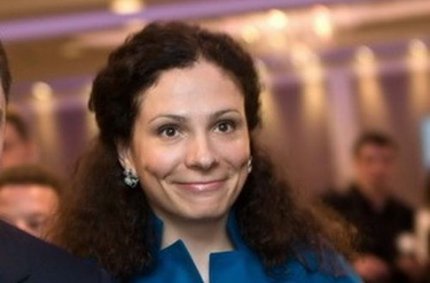
Yulia Levochkina
Meanwhile, her brother’s affairs were going with varying degrees of success. Viktor Medvedchuk became the “gray cardinal” under the president. Leonid Danilovich was generally a supporter of a system of checks and balances. So, having appointed Medvedchuk to the post of head of the Presidential Administration, he created the position of first assistant to the president for Lyovochkin. Sergei Vladimirovich, bypassing the omnipotent “Prince of Darkness and Darkness,” builds Kuchma’s communications with Litvin and Yanukovych. In 2004, according to some sources, he is related to the notorious “transit server”, which rigged elections in favor of Yanukovych; according to other sources, he becomes a mediator in the negotiations between Kuchma and Yushenko during the Orange Revolution. That is, “both ours and yours,” which, in principle, is his style. After Kuchma’s departure, Sergei Lyovochkin, naturally, leaves the building on Bankovaya. But he doesn’t leave politics. He becomes an adviser to the Speaker of the Verkhovna Rada Vladimir Lytvyn, and in the 2006 elections he tries to get into parliament on the lists of his political force, but together with the entire “Lytvyn Bloc” he does not pass the entry barrier. However, in the same year Yanukovych became prime minister, and Sergei Lyovochkin headed his apparatus. In 2007, he joined the political council of the Party of Regions and finally became a people’s deputy. He goes on the same list as his sister, only his number is 42.
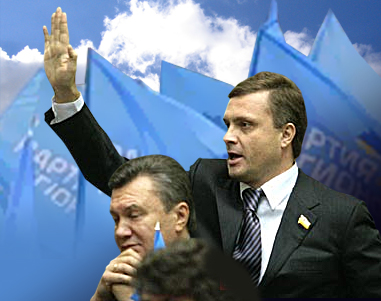
So, since 2007, brother and sister Lyovochkin have been working shoulder to shoulder in the Verkhovna Rada. Business at this time was also doing quite well. Even before his election, Sergei Vladimirovich lobbied for the monopoly “gas schemes” of the RosUkrEnergo company, and promoted his already mentioned partner Ivan Fursin to the position of shareholder of the company. This brought Lyovochkin closer to the majority shareholder of this gas monopolist, Dmitry Firtash, and opened up wide opportunities. Huge money was added to his talents and connections. The newly-made partners are promoting their people to power – Konstantin Grishchenko as Minister of Foreign Affairs, and the already mentioned Artem Ershov to the post of Deputy Minister of Finance. In 2009, Lyovochkin had a conflict with another deputy, Nestor Shufrich. Yanukovych, then still the leader of the Party of Regions, expressed disapproval that Nestor Ivanovich was not present in his retinue during his trip to Kerch. Shufrich responded by accusing Lyovochkin of setting him up, saying he did not warn him about his boss’s trip. When leaving the hall, Nestor Ivanovich hit Sergei Vladimirovich quite hard in the face, so that the latter slid down the wall. The deputies ran up and pulled him away. Sergei Levochkin had a chance to take revenge on the scandalous deputy only a few years later.
In 2010, Sergei Levochkin headed Yanukovych’s headquarters, and after his victory he became a real, official “gray eminence”, head of the Presidential Administration. Shufrich, with whom he was awarded the post of head of the Ministry of Emergency Situations for his active work in the elections and long faithful service, was the first to feel for himself that Sergei Vladimirovich does not forget anything. At first he was not included in the National Security and Defense Council, although he was required by his position. And three months after his appointment, he was completely kicked out of his position. This was followed by the purge of the entire “old team” of Yanukovych, which served faithfully to the Pope when he was an oppositionist. A castling was carried out with Anna German – the president was given another press secretary, a native of Western Ukraine very similar to her – Darka Chepak. He pushed “from the body” Taras Chornovil, who had gone through bad times with his boss. According to some reports, it was he who persuaded Viktor Fedorovich to imprison Tymoshenko. At the same time, together with his partners, mainly in RosUkrEnergo, which was reorganized into GDF (Dmitry Firtash Group), he expanded his business empire. During the reign of Viktor Fedorovich, this structure was replenished with such assets as Nadra Bank, Severodonetsk Azot, Zaporozhye Titanium-Magnesium Plant and others. The Parus business center was built. A “pocket opposition” was created in the form of Vitali Klitschko’s “UDAR” party. But his main asset was the Inter Media Group and its pearl, the Inter TV channel. Sergei Levochkin officially announced that he has a stake in the “first television button.” But in 2011-2012, the Levochkins began to have problems. And both at once.
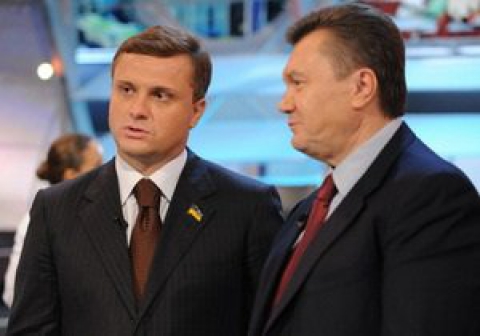
Sergei Lyovochkin and Viktor Yanukovych are almost on air
Yulia Levochkina, as we wrote earlier, got into a European scandal with the Russian delegation. The Russians wanted to include Ukraine in the list of countries where there are problems with neo-Nazism. This was due to the events in Lviv on May 9 of the same year. Yulia Vladimirovna did not allow this to be done through a scandal. The Russian lobby in the Party of Regions has always been very strong and Lyovochkina was removed from the list of “regionals” in 2012. However, that year, in general, the “Donetsk” ones pushed the “Levochkin-Firtashevskys” out of the lists. However, he found a way out of this situation. At this time, the head of Crimea, which was then still part of Ukraine, was Anatoly Mogilev. Before this, he became famous for a number of scandals as Minister of Internal Affairs. In Crimea, he was also haunted by scandals related to the extraction of property, land and outright criminality, the murders of the mayors of some resort towns. There is a version that he is the orderer of the murders – the killer of a certain Sinezhuk, who committed these murders. The mediator was Deputy Prime Minister of Crimea Pavel Burlakov.
Mogilev, apparently, was already going to be removed. But Sergei Vladimirovich helped the official who had fallen out of favor and put in a good word for him with the Pope. And as a return favor, Mogilev took Yulia Levochkina to Feodosia district No. 6. In Crimea they claim that for this purpose, Yulia Vladimirovna’s probable competitor, Tatar businessman Aider Isaev, was killed. And again by the same Sinezhuk, tied to Burlakov and Mogilev.
Be that as it may, Sergei Lyovochkin’s sister, who had no connection with Crimea, passed through the Crimean polling station in 2012. As a people’s representative, she got into a couple of scandals. One was financial – she declared in her declaration seven land plots, an entire car park and several million in her accounts. Which looks very bad, given the fact that since 2007 Yulia Vladimirovna has been a modest “servant of the people.” And the second is connected with a love affair with a deputy from the opposing camp, BYuT member Vitaly Chudnovsky. Her correspondence with security guard Lady Yu was photographed by attentive journalists and ended up on the Internet.
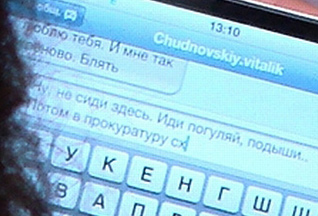
Meanwhile, Sergei Vladimirovich’s influence began to noticeably decline. The fact is that the “Family”, that is, young Donetsk officials and businessmen close to the president’s son Alexander Yanukovych, began to strive for power. In 2013-2014, they captured almost all the key posts in the country. They started talking about replacing Lyovochkin with the then head of the Ministry of Internal Affairs, Vitaly Yuryevich Zakharchenko. The head of the Presidential Administration resisted as best he could. It was his Inter TV channel that then promoted the scandal of rape and beating by the cops, that is, Zakharchenko’s subordinates, Irina Krashkova, in Vradievka. And miraculously, deputies from UDAR, which was sponsored by the “gray cardinal,” were at the spontaneous rally. Sergei Vladimirovich retained his place then, but this did not solve all his problems. Conflicts with the “Family” and the brothers who joined it continued Klyuev. It didn’t even help that Viktor Fedorovich’s mistress Lyubov Polezhay was registered as Yulia Levochkina’s assistant. And then Euromaidan broke out. There is no direct evidence of Sergei Levochkin’s participation in organizing the “Revolution of Dignity”. But there are some interesting facts.
One of the leaders of the Maidan was Vitaliy Klitschko, the leader of the UDAR party collaborating with Lyovochkin. In addition, one of the first to go to the Maidan was Mustafa Nayem, a journalist who is suspected of long-standing ties with Sergei Vladimirovich. And in general, he is one of the first to benefit from this. Be that as it may, it was the Lyovochkins who figured out the current situation faster than other representatives of the “criminal authorities.”
Sergei Lyovochkin himself resigned from the post of head of the Presidential Administration during the Maidan, and his sister even earlier, immediately after the dispersal of students, left the Party of Regions faction, and then the party.
The Levochkin family found a common language relatively easily with the new government. Vitali Klitschko lost his place in the presidential elections to Petro Poroshenko. Negotiations about this took place with the personal participation of Sergei Vladimirovich, he admitted this personally. They were not subject to EU sanctions compiled according to the lists submitted by Ukraine. In 2014, brother and sister again entered parliament on the list of the Opposition Bloc. Their reputation was slightly tarnished by Yulia Vladimirovna’s speech in PACE on January 28, 2015, when she called on MEPs to oppose the government of Ukraine “which is trying to build a wall between Ukraine and Russia (*country sponsor of terrorism).” However, despite the demand of Yatsenyuk’s party for the Prosecutor General’s Office to evaluate such a speech, everything ended without consequences. And besides, he “brought” into the Rada, according to various estimates, from 50 to 60 “his” deputies. Not only through the Opposition Bloc, but also through the Petro Poroshenko Bloc, the Radical Party and majoritarian districts. He still influences the mayor of Kyiv; moreover, his close friend Igor Nikonov took the post of first deputy of the Kyiv city administration. Some political scientists cautiously predicted the post of prime minister for Sergei Vladimirovich.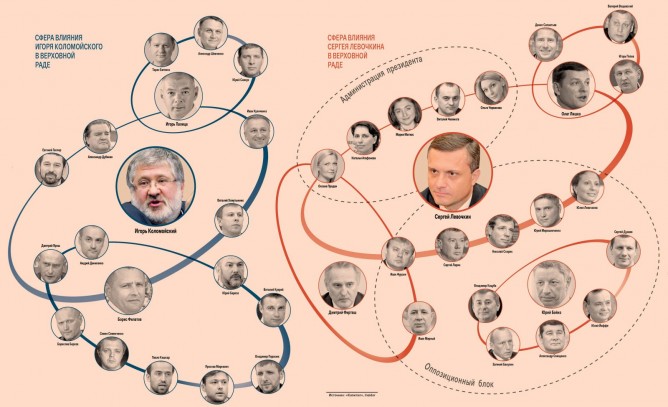
But then, apparently, something went wrong. In June 2015, Sergei Levochkin gave an interview to the German publication Die Zeit in which he sharply criticized Petro Poroshenko, in particular, he said that the president was splitting Ukraine. I didn’t have to wait long for an answer. Publications immediately appeared in which the Levochkin family was accused of a land scandal. Their land plots were found in Kozin and Koncha-Zaspa, in the village of Trilesy, Fastovsky district and near the village of Gnidyn. The last property is especially creepy – near the same village there is a recreation center owned by Sergei Vladimirovich’s business partner, Oleg Titarenko. There, in 2014, during the Euromaidan, they found the murdered activist Yuri Verbitsky. “Hromadske TV” sees a connection between these facts, and the journalist of this TV channel Dmytro Hnap dared to openly be rude to the once all-powerful “gray cardinal”. In response to an appeal from Levochkin’s lawyers, he made them a rather obscene response offer on his social network page.
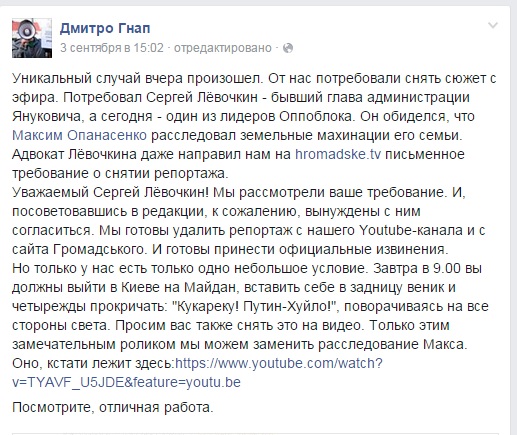
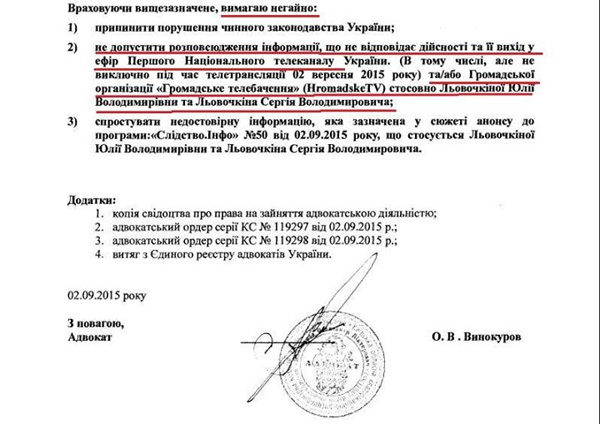
And here is the video itself:
And besides Poroshenko, Sergei Lyovochkin has plenty of enemies in Ukraine. For example, the same Igor Kolomoisky. It is not known for certain what the root of their enmity is. Some experts point to a conflict with the late Igor Eremeev: Sergei Levochkin allegedly took his side. Others say that Igor Valerievich has set his sights on reprivatizing for himself some of the assets belonging to Firtash and Lyovochkin. But the conflict went public; Inter and 1+1, controlled by the warring oligarchs, erupted in a series of films and stories exposing the opposing side. It’s hard to say which of them won; it’s more of a fighting draw.
Sergei Vladimirovich also has a difficult relationship with the current prime minister. The latter “ran into” the chemical plants owned by Firtash, demanding the return of money for gas, threatening otherwise to nationalize these plants. In addition, the Cabinet of Ministers started a war over the Sumykhimprom plant, which had been driven to bankruptcy. And there is also a war for the Odessa port plant, which we have already written about. In a word, things have been going worse and worse for the Levochkin family lately.
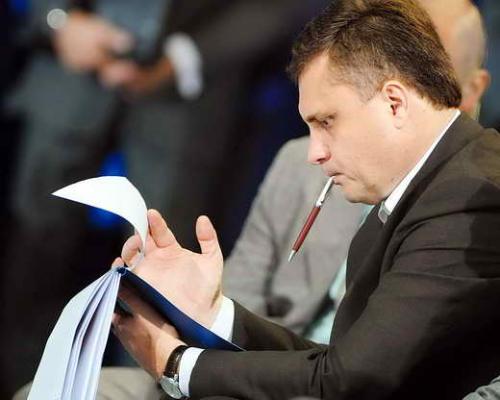
Sergey Levochkin
According to the latest information, Sergei Lyovochkin left Ukraine. However, there is no information for how long. In any case, his interests, his assets and, most importantly, his people remained here. And judging by the way our government is fighting corruption, the retired “gray cardinal” does not face anything serious. However, some media have already loudly announced the end of the “Levochkin era.” But there is no need to rush to conclusions; perhaps everything is just beginning…
Denis Ivanov, Skelet.Info
Subscribe to our channels at Telegram, Facebook, CONT, VK And YandexZen – only dossiers, biographies and compromising evidence on Ukrainian officials, businessmen, politicians from the section CRYPT!

